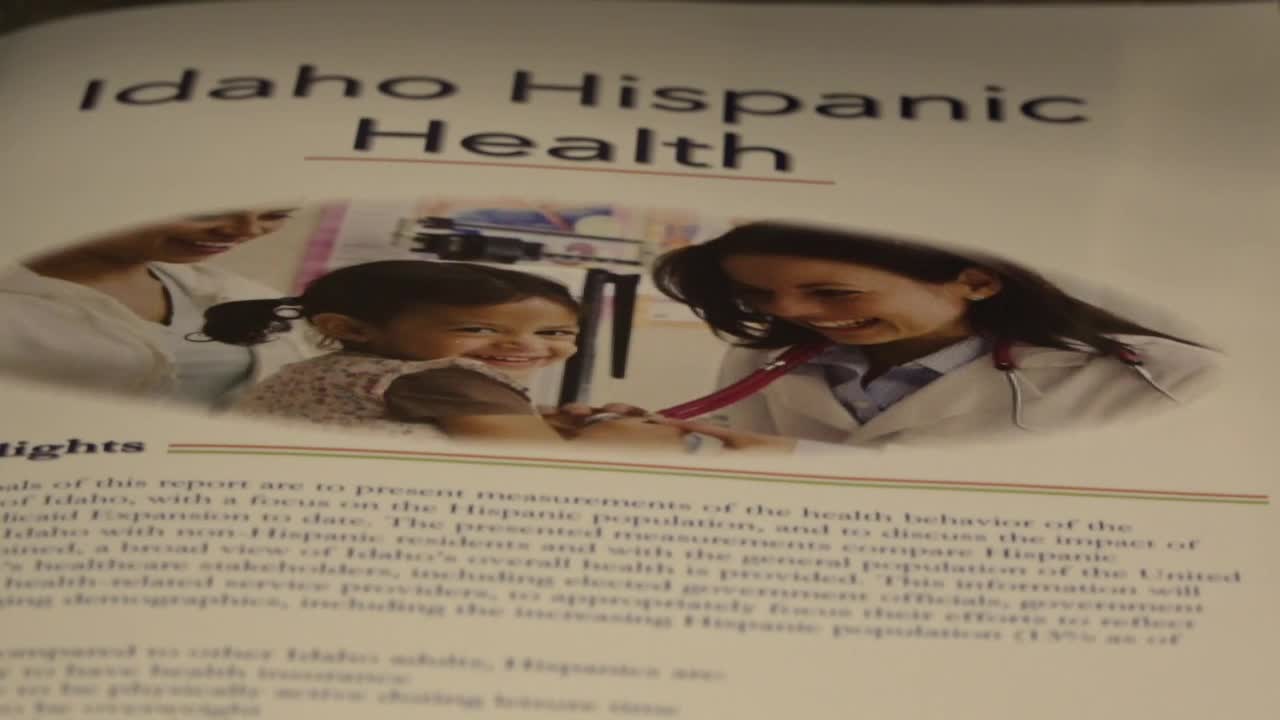TWIN FALLS, Idaho — Healthcare coverage continues to be an issue for many. In fact, the Idaho Commission on Hispanic Affairs and Idaho State University recently took a look at the situation. What they found was, in some cases, very concerning.
The findings compare Hispanic residents of Idaho with non-Hispanic residents and with the general U.S. population. One of the highlights revealed the low coverage status among Hispanics.
“We need to work with health providers to make sure that they know all this information is out there,” said JJ Saldaña, the Community Resource Development Specialist for ICHA.
The report found that Hispanics are less likely to have health coverage compared to other Idahoans. In 2020, more than 25% of Hispanics in Idaho were without healthcare and 10% of Hispanic children went uninsured. That was more than double the rate of Non-Hispanic children.
Grenda Chavez, a resident in Jerome, tells me that while working in healthcare she has noticed legal status as being one of the reasons many go without insurance.
“They are not legal or they lose residency, so they are scared to come out of the woodwork to ask for help,” said Grenda Chavez.
With undocumented immigrants ineligible for federal health coverage or access to the Affordable Care Act, some are left with purchasing private healthcare coverage, which can be extremely expensive.
"We are hearing people say it's either we pay the rent or buy insurance… the rent always succeeds," said Saldaña.
The average national monthly health insurance cost for one person on an Affordable Care Act plan without subsidies in 2022 was $438, a large chunk of income for those in already low-paying jobs.
As of this year— the Medicaid expansion provided healthcare insurance coverage to 145,000 Idahoans who would not otherwise be able to afford it.
“Everyone needs to know what their options are, and everyone does have an option. We just have to find that option,” said Chavez.
The good news is that with the expansion of Medicaid, the number of those uninsured has gone down, and that work is being done to help decrease disparities between Hispanics and non-Hispanic Idahoans.



